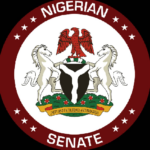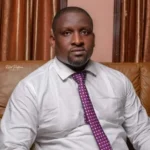The Legal Defence and Assistance Project (LEDAP) has proposed legal amendments at the National Assembly to grant women greater political participation in Nigeria.
The civil society group presented the proposal in a one-day media parley, in Abuja on Friday, on legal barriers that inhibit women’s political participation.
- Senate panel kicks as Justice ministry budgets N2bn for prosecution of Boko Haram, others
- Stop going on foreign medical trips, Senate c’ttee tells Buhari
The LEDAP report presented proposals for comprehensive reviews in the Electoral Act, Gender and Equal Opportunities Bill, National Gender Policy and INEC Guidelines to block gaps and challenges constituting legal barriers to women political participation.
For instance, under the Electoral Act, LEDAP is proposing the provision of at least 35 per cent affirmative action for national commissioners, state resident commissioners of the Independent National Electoral Commission, and amendments to sections 1, 2, and 8 of the Act to mainstream gender in the work of INEC.
Under INEC Guidelines, LEDAP seeks the provision of Special Voting Points for women, especially where culture does not allow the mingling of men and women, setting up of the Gender and Equal Opportunities Commission which will have at least 60 per cent of the staff as women.
The Executive Director, LEDAP, Mr Chinonye Obiagwu (SAN), said his organisation had reviewed some of the laws and policies that provide access to political offices in Nigeria and made findings on the existing legal barriers as well as made recommendations to the legislators and policymakers on affirmative actions that can be adopted to increase access to political offices for women.
He noted that LEDAP, in partnership with the National Democratic Institute (NDI), with the support of the U.S Agency for International Development (USAID), is implementing a project titled ‘Increasing Women’s Political Participation through Advocacy for Legal Reforms’ under the Supporting Advancement of Gender Equality (SAGE) programme aimed at increasing women’s participation in political processes.
In a keynote address, the Resident Director, NDI, Stephen Snook said Nigeria’s democratic process would benefit more if women were allowed to actively participate in the process.
A facilitator at the parley, Uju Okeke, while reviewing some of the legal barriers in the 1999 constitution and INEC gender policy that inhibits women’s involvement in politics, said: “Women have been left behind in Nigeria’s political space.”
She called for the inclusion of gender diversity in the constitution to encourage women’s involvement in politics. “Women’s political participation is a matter of justice, obligation and human rights,” she said.
Similarly, the Executive Director, Justice and Rights Initiative, Mr Justin Gbagir, said, “Women’s political participation and gender equality in elections can be promoted through both international commitments and domestic legal provisions.”
He further suggested that policy and legal framework should be put in place to address the gender imbalances in the electoral process.
 Join Daily Trust WhatsApp Community For Quick Access To News and Happenings Around You.
Join Daily Trust WhatsApp Community For Quick Access To News and Happenings Around You.

